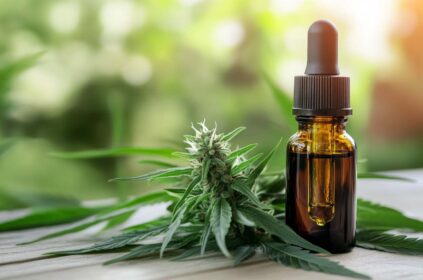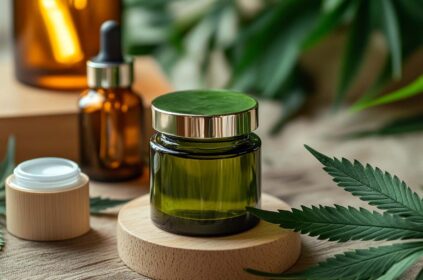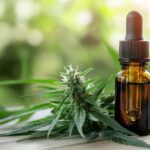Exploring the Amazing Benefits of CBD: A Comprehensive Guide
The growing popularity of CBD (cannabidiol) has sparked curiosity and intrigue among consumers everywhere. From its roots in the hemp plant to the diverse range of products available today, understanding CBD and its benefits is essential for anyone considering integrating it into their wellness routine. But what exactly is CBD, and why has it gained such a remarkable reputation? In this article, we’ll dive deep into the world of CBD, addressing common questions, exploring its potential health benefits, and offering insights on how to incorporate it into your daily life.
What Is CBD?
CBD is one of over 100 chemical compounds found in the cannabis plant, specifically in hemp. Unlike its more notorious cousin, THC (tetrahydrocannabinol), CBD does not produce a “high” effect, making it an appealing option for those seeking therapeutic benefits without psychoactive properties.
CBD interacts with the body’s endocannabinoid system (ECS), a complex network of receptors and neurotransmitters that regulate a variety of functions, including mood, sleep, appetite, and immune response. By influencing the ECS, CBD helps maintain balance in the body, promoting overall wellness.
The Legality of CBD
Understanding the legal landscape of CBD is essential for potential users. In the United States, the 2018 Farm Bill legalized hemp-derived CBD containing less than 0.3% THC on a dry weight basis. This means that consumers can legally purchase CBD products in most states, though regulations may vary. It’s important to research local laws before purchasing any CBD product to ensure compliance.
The Health Benefits of CBD: What the Research Shows
Although research on CBD is still ongoing, a growing body of evidence supports its potential health benefits. Let’s take a look at some of the most prominent claims and the corresponding studies.
- Anxiety Relief: Numerous studies suggest that CBD may help alleviate anxiety. A 2019 study published in The Permanente Journal found that CBD significantly reduced anxiety levels in 79% of participants. Many users report feeling calmer after taking CBD, which may stem from its ability to interact with serotonin receptors in the brain.
- Pain Management: CBD has been shown to have anti-inflammatory properties, which may assist individuals dealing with chronic pain conditions. A review in the Journal of Experimental Medicine concluded that CBD could effectively reduce pain and inflammation in various animal models.
- Improved Sleep: Sleep issues affect millions of people. Research indicates that CBD may enhance sleep quality and combat insomnia. A study published in the journal Nature Science of Sleep found that participants using CBD fell asleep faster and experienced less disturbance during the night.
- Neuroprotective Effects: Some studies imply that CBD may have protective qualities for the brain. For those dealing with neurodegenerative diseases, such as Alzheimer’s or multiple sclerosis, preliminary research indicates that CBD might slow disease progression. A review in the journal Frontiers in Neurology discussed the potential role of CBD in neuroprotection.
- Skin Care: CBD’s anti-inflammatory properties extend to skincare as well. Many products are now infused with CBD to address acne, dermatitis, and other skin conditions. A study in the journal The Journal of Clinical Investigation highlighted CBD’s potential to reduce sebum production while exerting anti-inflammatory effects.
Choosing the Right CBD Product
With the expanding variety of CBD products on the market, it’s essential to choose the right product for your needs. Here are a few popular options:
- CBD Oil/Tinctures: Often taken sublingually (under the tongue), oils and tinctures provide a quick onset of effects and allow for precise dosage adjustments.
- CBD Capsules: These offer a familiar and convenient way to take CBD, with pre-measured doses that are easy to incorporate into a daily supplement routine.
- CBD Edibles: Gummies or other infused foods can be a tasty way to consume CBD, although they may have a delayed onset of effects compared to oils.
- CBD Topicals: Creams, balms, and lotions can be applied directly to the skin for localized relief from pain, inflammation, or skin issues.
- CBD Vapes: Vaping provides immediate absorption into the bloodstream, offering quick relief but may not appeal to everyone due to health concerns.
Determining Dosage
Finding the right dosage of CBD can vary from person to person based on factors like body weight, metabolism, and desired effect. Here’s a simple approach to finding your ideal dosage:
- Start Low: Begin with a low dose, typically 5-10 mg of CBD per day.
- Observe Effects: Pay attention to how your body responds over several days.
- Gradually Increase: If necessary, gradually increase the dosage until you find the level that provides the desired benefits.
Common Mistakes to Avoid
While many people find relief with CBD, there are common pitfalls to avoid:
- Assuming More is Better: Higher doses do not always yield better results. Find your sweet spot.
- Neglecting Quality: Not all CBD products are created equal. Look for third-party lab testing to ensure purity and potency.
- Expecting Instant Results: CBD might take time to build up in your system. Consistency is key.
Conclusion
As the understanding of CBD continues to grow, many consumers find themselves drawn to its potential benefits for anxiety, pain management, and overall wellness. By considering the research, exploring different product options, and paying attention to your body’s responses, you can make informed decisions about incorporating CBD into your routine.
Whether you choose oils, capsules, or topical creams, the versatility of CBD offers something for everyone. As always, it’s wise to consult with a healthcare professional before starting any new supplement regimen, especially if you have existing health conditions or are taking medications.




















